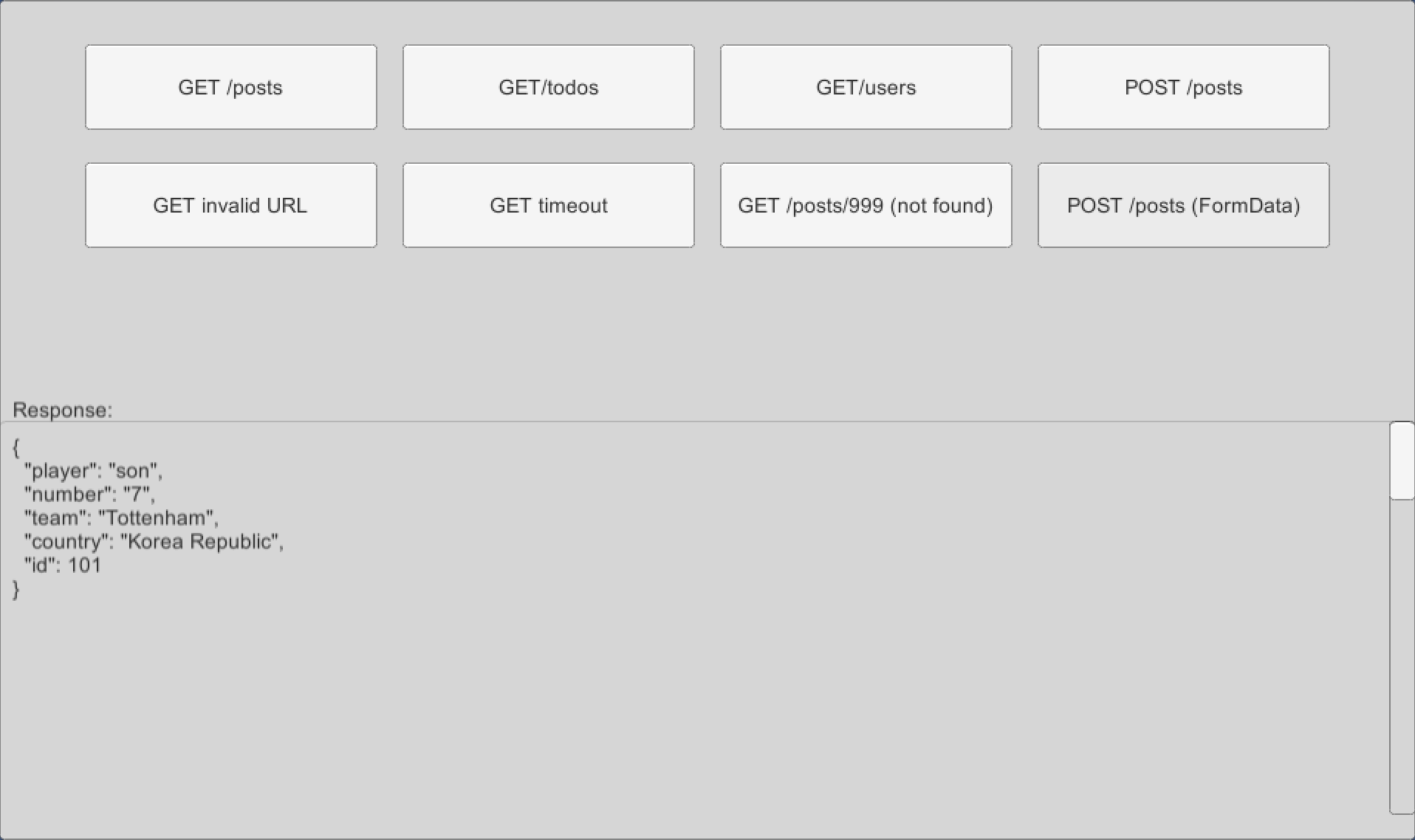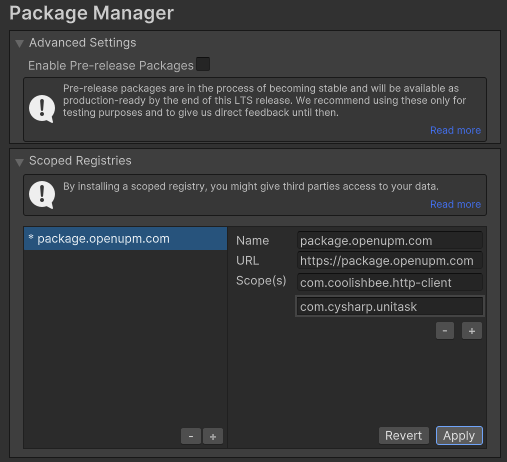Provide efficient HttpClient functions using UniTask in Unity.
- using UniTask
- using UnityWebRequest, UnityWebRequestTexture
- Success, error and network error events
- GET, POST, PUT, DELETE, HEAD
- Provide various examples
There are 4 ways to install this plugin:
- import UniHttpClient.unitypackage via Assets-Import Package
- (via Package Manager) add the following line to Packages/manifest.json:
"com.coolishbee.http-client":"https://github.com/coolishbee/simple-http-client-unity.git",
- (via OpenUPM) after installing openupm-cli, run the following command:
openupm add com.coolishbee.http-client
string requestURL = "http://localhost:8000" + "/api/path";
var req = SimpleHttpClient.Get(requestURL)
.OnSuccess(res => Debug.Log(res.Text))
.OnError(err => Debug.LogWarning(err.Error))
.OnNetworkError(netErr => Debug.LogError(netErr.Error))
.Send();var team = new TeamInfo_Req("Chelsea", "Graham Potter", "3:4:2:1");
string requestURL = "http://localhost:8000" + "/api/path";
var req = SimpleHttpClient.PostJson(requestURL, JsonUtility.ToJson(team))
.OnSuccess(res => Debug.Log(res.Text))
.OnError(err => Debug.Log(err.Error))
.OnNetworkError(netErr => Debug.LogError(netErr.Error))
.Send();string requestURL = basePath + "/posts";
WWWForm form = new WWWForm();
form.AddField("player", "son");
form.AddField("number", "7");
form.AddField("team", "Tottenham");
form.AddField("country", "Korea Republic");
var req = SimpleHttpClient.Post(requestURL, form)
.OnSuccess(res =>
{
responseText.text = res.Text;
})
.OnError(err => Debug.LogWarning(err.Error))
.OnNetworkError(netErr => Debug.LogError(netErr.Error))
.Send();

